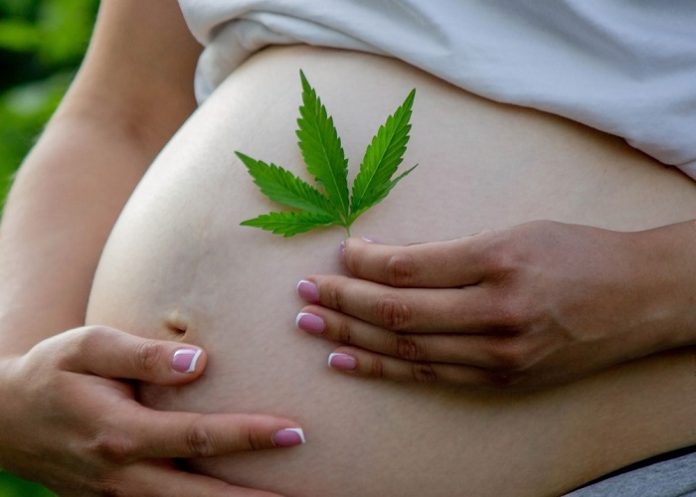Experts are now advising universal screening about cannabis habits before, during and after pregnancy in efforts to reduce potential risks following an alarming analysis of more than 450 000 pregnant American women which found that cannabis use more than doubled between 2002 and 2017.
Now, new guidance from the American College of Obstetricians and Gynecologists (ACOG) advises women to completely abstain from cannabis use during pregnancy and lactation, reports CNN.
In the United States, cannabis use has increased among pregnant women amid broadening legalisation and growing social acceptance, and the nation’s leading group of ob/gyns says the recommendations offer providers “evidence-based guidelines for counselling, screening, and strategies to reduce cannabis use”.
“When things become more normalised in society, it’s natural for us to feel that we don’t have to think about the potential risks,” said Dr Amy Valent, an ob/gyn with Oregon Health & Science University, who helped develop the new guidance.
“People have been using cannabis for years, and it’s not associated, as far as we know, with … birth defects,” she said. “But should that be the bar for pregnancy safety?”
There is a “paucity of data rigorously investigating the safety or efficacy of cannabis use in human pregnant or lactating individuals,” according to ACOG.
A lot has changed since the group’s last opinion on the issue from 2017. Research that is now available shows that cannabinoid receptors are present in the foetus from as early as five weeks, and that the main psychoactive component of cannabis, THC, can cross the placenta and transfer into breast milk – and that exposure is associated with risks of adverse outcomes.
Changing cannabis laws and reports of increased use during pregnancy initially spurred interest and questions among ACOG members, Valent said, and ongoing policy inconsistencies called for a concise summary of the science.
Dozens of experts involved with an ACOG committee for clinical consensus in obstetrics have been developing this latest guidance for years, assessing all related research done over the past two decades.
Their assessment suggests that cannabis exposure during pregnancy has been associated with low birth weight, admission to the neonatal intensive care unit and perinatal mortality. There are also potential neuro-developmental consequences from cannabis exposure, including attention deficit disorders, memory challenges and intellectual disabilities.
It’s difficult to quantify the amount of cannabis use and the associated degree of adverse outcomes, Valent said, but the goal with this guidance is similar to others around substance use during pregnancy.
Drug tests ‘strongly discouraged’
The guidance makes a pointed distinction between validated screening tools and biologic testing for cannabis use.
Drug tests using hair, urine or other biological materials have resulted in biased treatment against members of racial and ethnic minority groups, the guidance says, and their use is “strongly discouraged”.
Instead, universal screening through various interview methods or self-reporting creates opportunities for intervention before delivery – and “supports equitable and non-discriminatory health practices”.
Simply having a discussion may raise a patient’s awareness of potential risks and influence their behaviour during pregnancy, according to the ACOG guidance. Many patients may use cannabis to self-manage nausea associated with pregnancy or to relieve anxiety and stress.
Better communication between patients and their providers about these underlying symptoms may help curb cannabis use, they say.
Each patient is different, and asking about other ways they’ve tried to manage their symptoms can reinforce a personalised approach to care, Valent suggested.
“Sometimes cannabis can actually be the root cause of nausea, or it may be helped by exercise, eating more often, or taking certain medicines.”
See more from MedicalBrief archives:
Foetal growth stunted by cannabis in pregnancy – US study
Prenatal cannabis exposure linked to adolescent mental health issues
Pregnancy – Cannabis use linked to autism; alcohol raises miscarriage risk
Cannabis law reform: experts cite possible public health consequences

